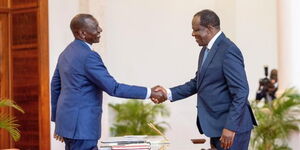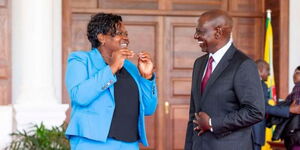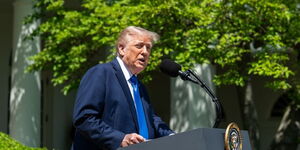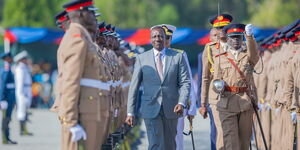President Uhuru Kenyatta's election wins in 2013 and 2017 were largely due to the influence of the Cambridge Analytica, a data-mining firm that also handled the 2016 presidential campaigns of the US President Donald J. Trump.
Reports from the Daily Nation on Sunday, December 5, indicate that Alexander Nix, the head of the controversial firm, sent a proposal of Ksh328 million to the Jubilee Party in the run-up to the 2017 general elections to provide a number of services that inadvertently led to the party's win.
Even though the government has constantly denied the involvement of the damned firm in its election campaigns, a new spate of emails begs to present a different picture.
Their participation was supposed to be a highly discreet affair, with the firm expressing fears that if Uhuru got the knowledge that word was being spread around, they would lose their contract.
The released emails indicate that the organization invited President Uhuru Kenyatta to testify in New York at an event by Concordia, a non-profit organization, on the company's use of technology and data to win elections.
Other leaders across the world who had also benefitted from the service were also reported to have been invited to give their testimonials that would help boost Cambridge Analytica's profile in 2016.
While President Kenyatta did not honor the invite, the emails prove that the firm indeed played a key role, with Nix reported having met Uhuru a number of times in the run-up to both 2013 and 2017 General elections.
The company, in the emails, admitted to having played key roles in deciding the Jubilee team's campaign theme, the development of a manifesto, party policies, media strategy, the setting up of a party website, monthly polling and the organization of voter.
Reports also indicate that in 2017, the organization returned to the fore of the jubilee campaigns and took their role a notch higher, informed by the opinion that Kenyans' emotions needed a stirring to ensure that they saw the Jubilee party in a positive light.
"A majority of Kenya's electorate chose the Jubilee Alliance in 2013, but voters have short memories, and while 2017 elections may seem far off, now is the time to begin building towards a second historic victory," Analytica proposed to the president while seeking the 2017 contract.
The data firm was charged with the misinformation and fake news that was rife across the country, painting the ODM leader Raila Odinga's win as the end of peace in the country.
It also made proposals that in the hotly contested elections, the Jubilee party should consider changing from the URP and TNA alliance to a coalition to consolidate its support amongst the voters, a matter that was followed to the letter.












